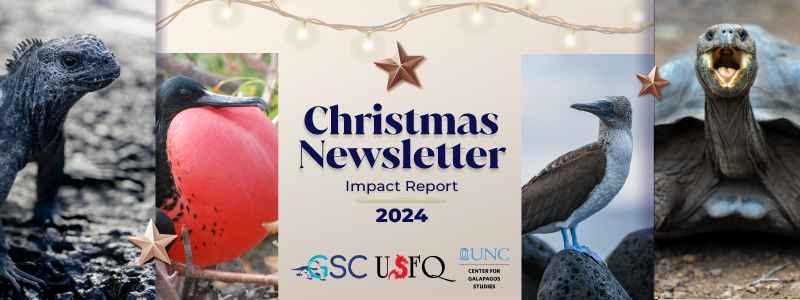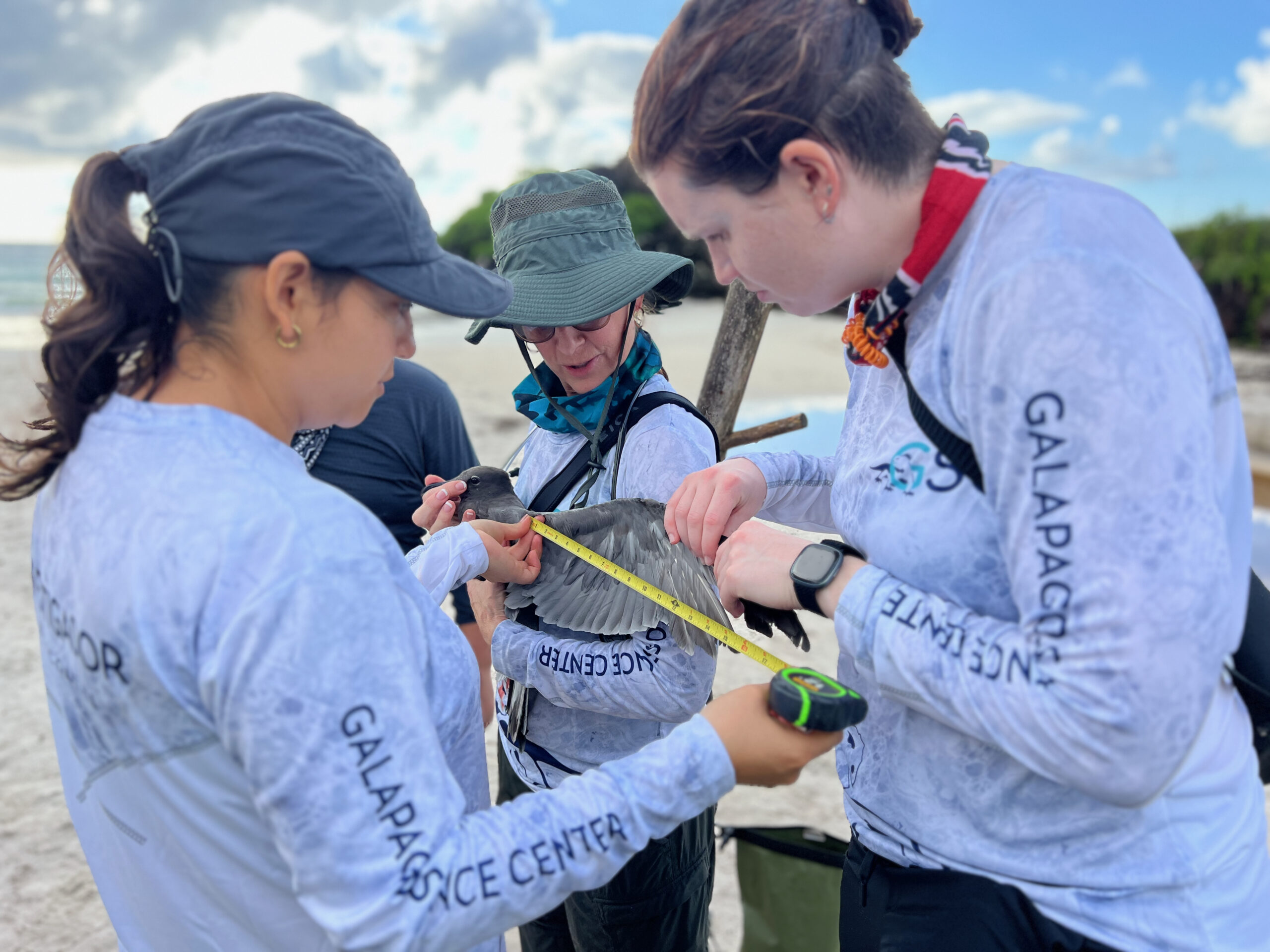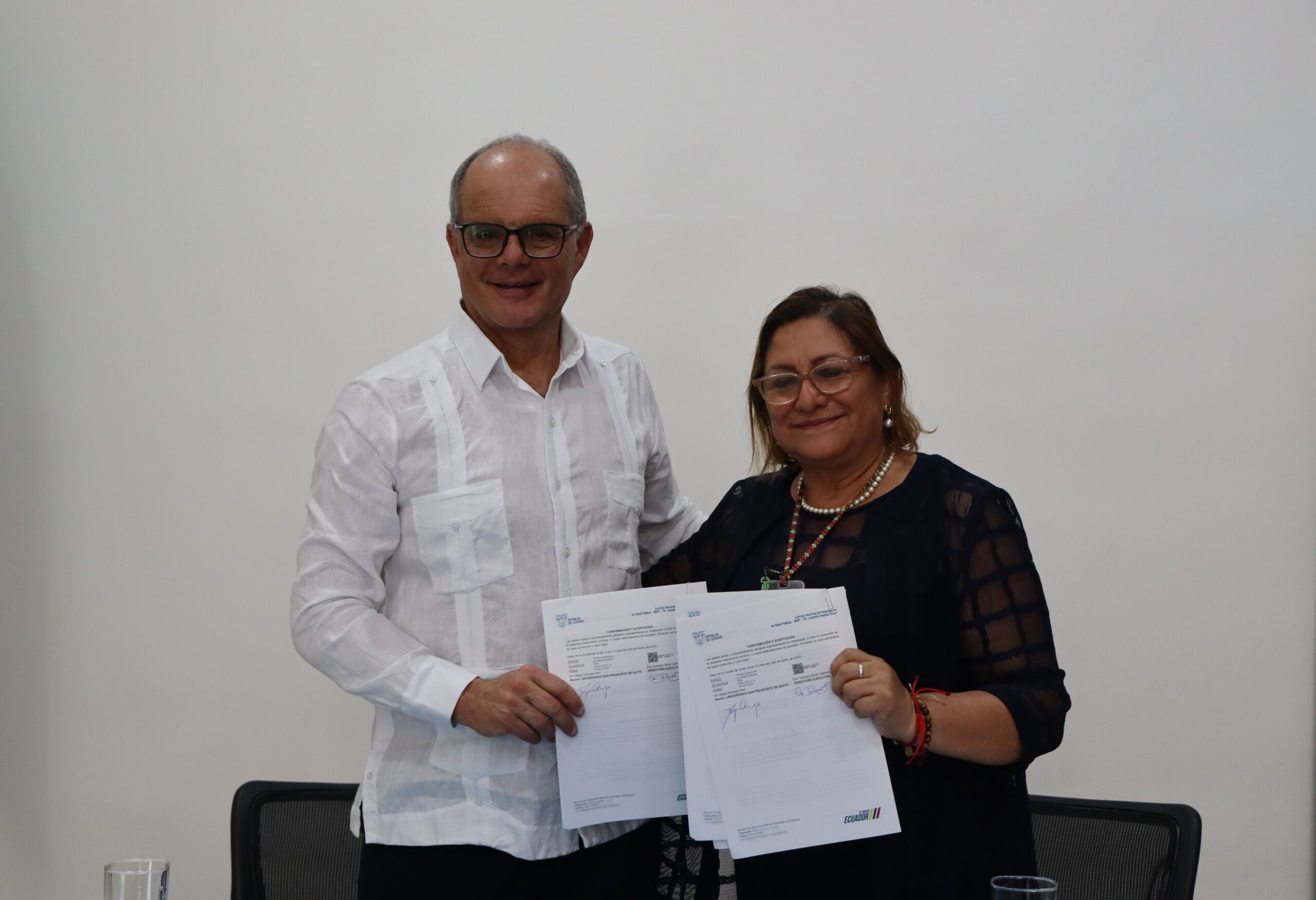We want to wish you a Merry Christmas and a wonderful New Year! We invite you to explore news and statistics highlighting our efforts to promote conservation and sustainable development in the Galápagos Archipelago, a UNESCO World Heritage Site.
13 Years of Impact at the Galapagos Science Center: Research, Education, and Sustainable Community Development for the Galápagos Islands
The Galapagos Science Center (GSC), established in 2011, is a collaboration between Universidad San Francisco de Quito (USFQ) and the University of North Carolina at Chapel Hill (UNC). This partnership promotes interdisciplinary research, enhances experiential education, and supports sustainable community development in the Galápagos Islands.
The GSC tackles the most pressing challenges through research projects focused on five core areas: environmental change, community and human health, conservation, oceans, and biodiversity. We invite you to explore the impact of data collected over 13 years of dedication to science and the community. Discover how the GSC has become a cornerstone for a sustainable future in the Galápagos.
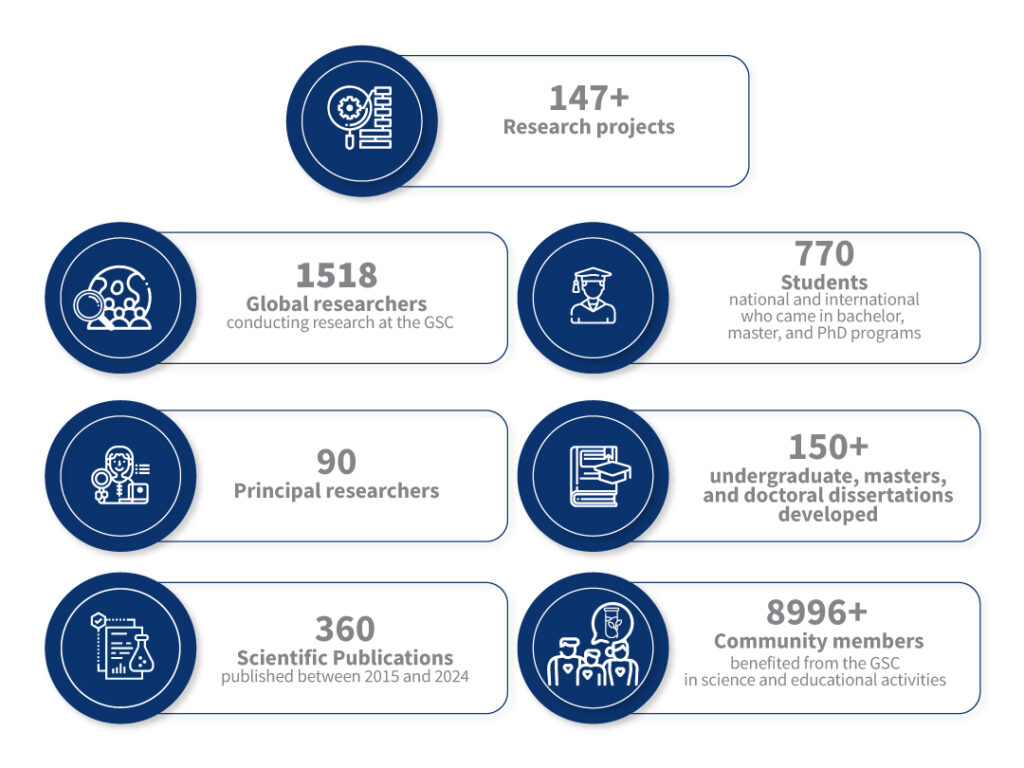
Scope of interdisciplinary research, experiential education and community development activities between 2011 and 2024.
Exploring the effects of Climate Change: Scientific Expeditions in the Galápagos
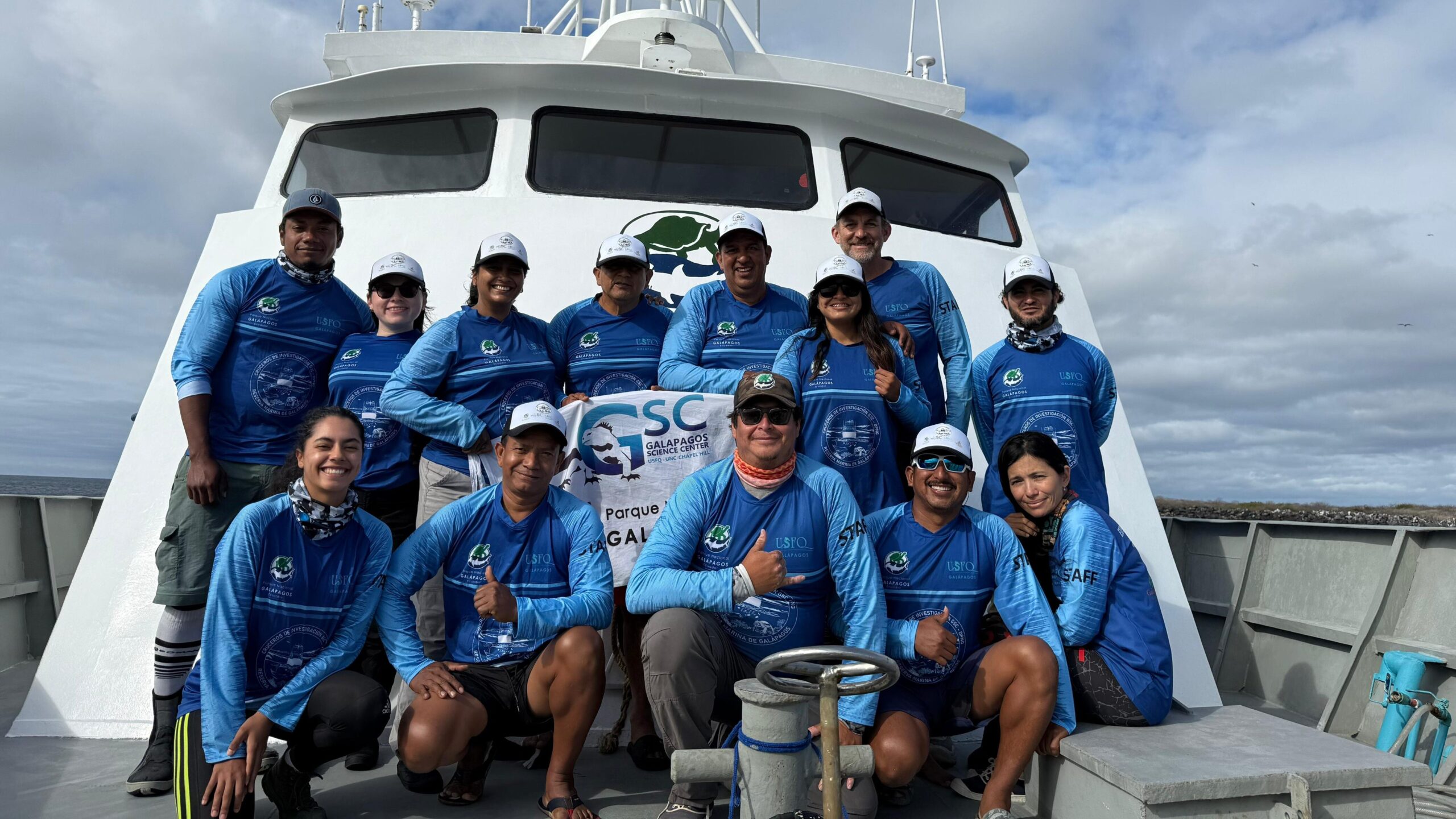
Since 2014, the Directorate of the Galápagos National Park (GNP), the Universidad San Francisco de Quito (USFQ), and the University of North Carolina at Chapel Hill (UNC), through the Galapagos Science Center (GSC), saw the necessity to generate a project that would allow them to navigate around the archipelago in order to obtain updated information on the population and health status of several emblematic species like sea lions, fur seals, marine iguanas and turtles, as well as the effects of climate variability within the Galápagos Marine Reserve.
These expeditions cover 18 days of intensive work in more than 30 sites distributed across 14 islands. Censuses, health analyzes and studies are carried out on the influence of climatic events such as ENSO (El Niño Southern Oscillation). This climatic event is characterized by generating warming in the ocean that decreases the marine productivity of the region, generating conditions that lead to lower availability of food for marine/coastal consumers.
With the financial support of allied institutions such as Galápagos Conservancy the project has not only provided key insights into population recovery and trends but also established a scientific foundation for future conservation efforts. During the final months of this year, the last scientific expedition was conducted, and its findings will be revealed in mid-2025. Learn more about this fascinating initiative and its findings in our feature story.
Our commitment to human health in the Galápagos Islands
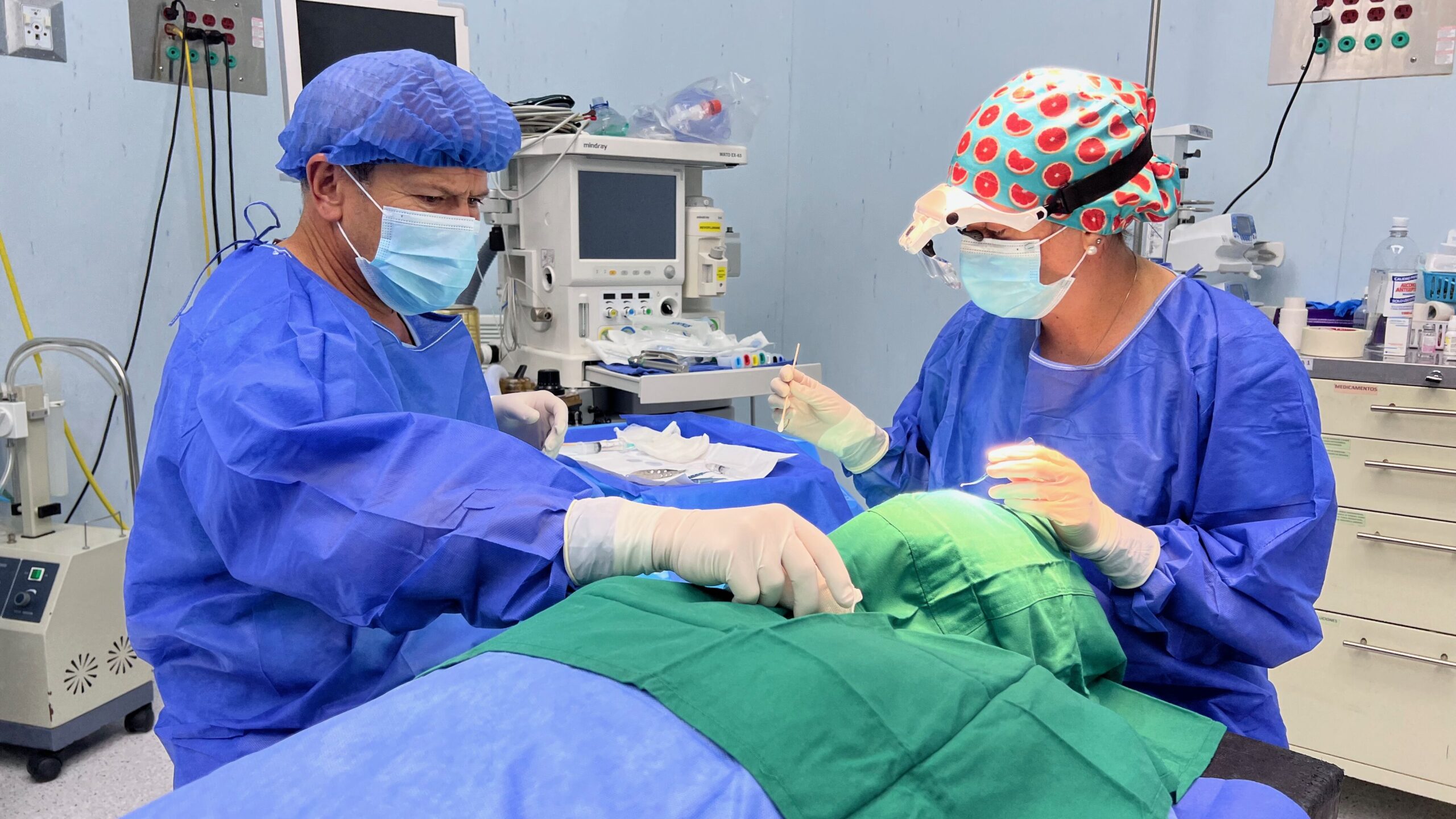
During these 13 years, the Galapagos Science Center (GSC) has led transformative initiatives to enhance the health, social, and ecological systems of the Galápagos Islands. This effort results from an international collaboration between the Universidad San Francisco de Quito (USFQ) and the University of North Carolina at Chapel Hill (UNC), supported by a dedicated interdisciplinary team that includes Amanda Thompson, Jill Stewart, Valeria Ochoa, Jaime Ocampo, and other distinguished professionals.
Our most impactful initiatives encompass groundbreaking studies on the effects of water quality on human health, and monitoring programs for both drinking and recreational water quality. Additionally, we have provided training for medical staff at the Oskar Jandl Hospital. Since 2016, we have served over 700 patients through telemedicine and organized specialized medical brigades in cardiology, ophthalmology, and dentistry. Moreover, we played a key role in the COVID-19 vaccination campaign in 2021.
Our commitment extends beyond healthcare. We have initiated campaigns to prevent gender-based violence, promoted sports activities such as triathlons and surfing championships, and launched mental health initiatives, all with the goal of fostering a healthier and more sustainable Galápagos.
Galápagos Day: Connecting Ecosystems and Promoting Global Conservation
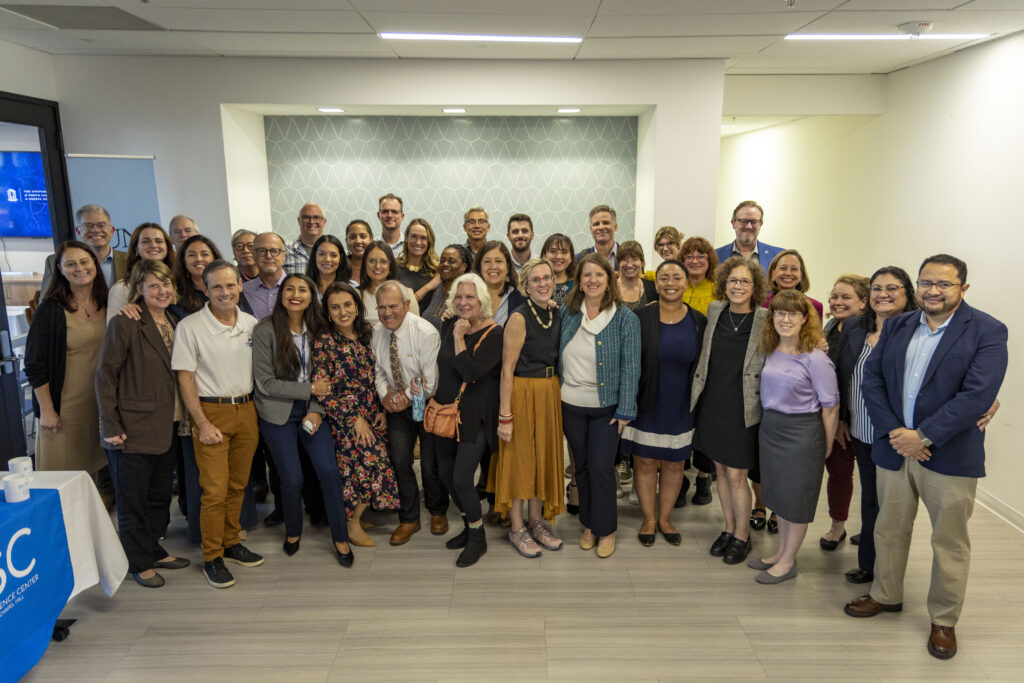
(Megan Mendenhall / Office of Research Communications)
The Galápagos Day took place at the University of North Carolina at Chapel Hill (UNC) campus and was organized by the UNC Center for Galapagos Studies and the Galapagos Science Center (GSC). The event brought together researchers, students, and staff from UNC, Universidad San Francisco de Quito (USFQ), and North Carolina State University (NCSU).
Keynote speaker Ashlan Cousteau, ocean advocate and filmmaker, delivered an inspiring message on nature’s resilience, highlighting Galápagos as a symbol of hope and global action in addressing environmental challenges.
Interdisciplinary research was presented on topics such as marine conservation, invasive species, water resources, and child nutrition in Galápagos. Finally, panel discussions emphasized opportunities for scientific collaboration, student engagement, and community outreach activities achieved through GSC’s work.
In September, Galápagos Day in Valencia, Spain, gathered international experts to discuss shared challenges between the Galápagos Islands and Valencian wetlands. Organized by GAIAS Europa, USFQ, and GSC, the forum focused on water management, endemic species conservation, and sustainable tourism.
The event featured presentations by experts like Andrea Encalada, Vice Chancellor of USFQ and Carlos Mena, GSC Co-Director, concluded with a photographic exhibition showcasing Galapagos’ unique biodiversity and underscoring the urgency of its conservation.
Tour the “Hacienda El Progreso” on San Cristóbal Island
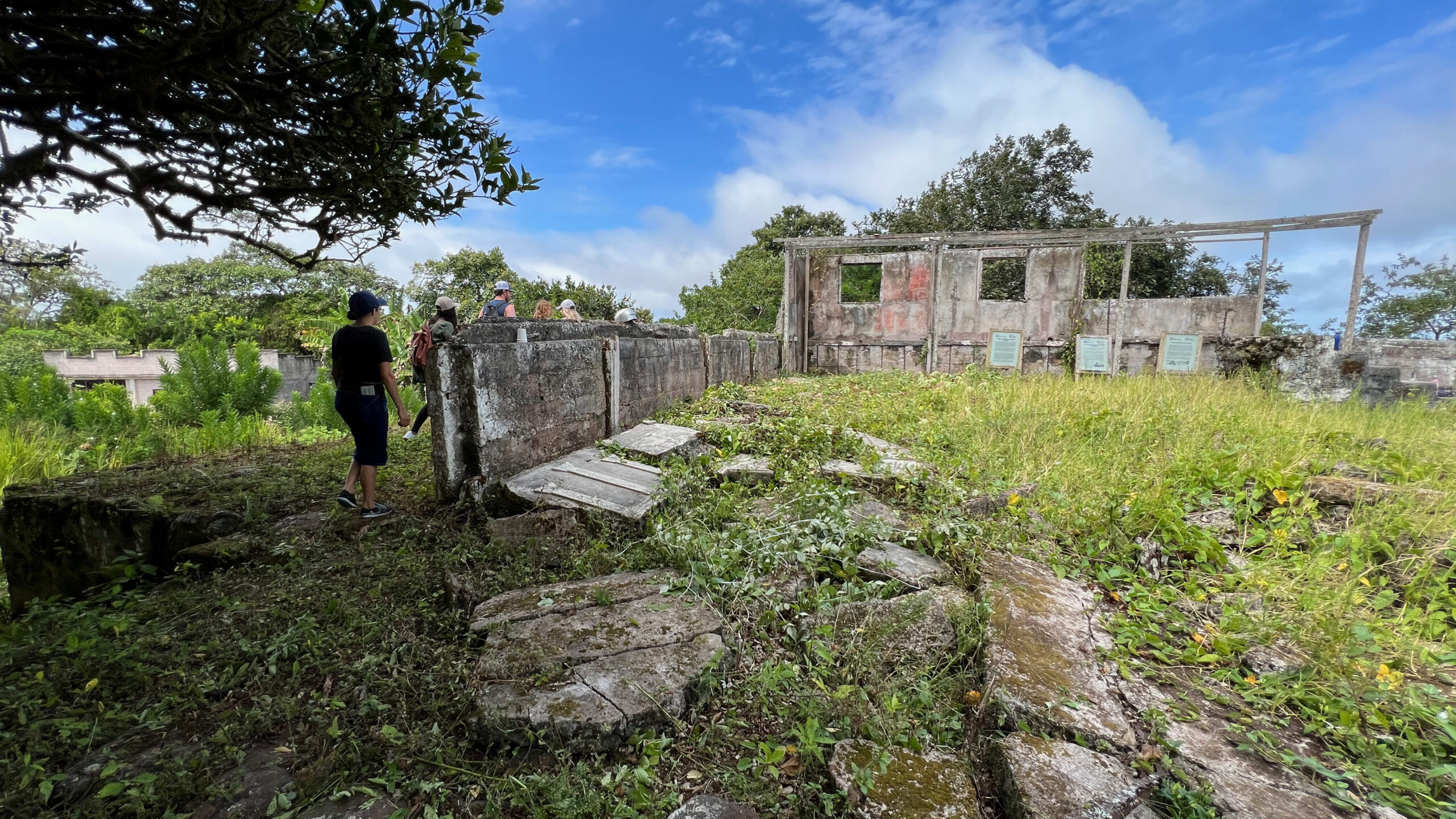
Join us in exploring the history of Casa Cobos, the former administrative center of Hacienda El Progreso in Galápagos, dating back to 1889.
Fernando Astudillo and Paul Rosero, professors at USFQ and GSC researchers, led the creation of the virtual reality model of this iconic building, which served as the political epicenter of the region during the second half of the 19th century. The immersive digital model of Casa Cobos was developed by integrating historical data, archaeological evidence, and old photographs with Digital Elevation Models (DEM) using LiDAR technology.
This video is optimized for virtual reality headsets and cell phones, providing a unique opportunity to explore history. Explore Casa Cobos in virtual reality, relive key moments from its past, and witness the evolution of human life in Galápagos!
Galápagos scientific research is just a click away!
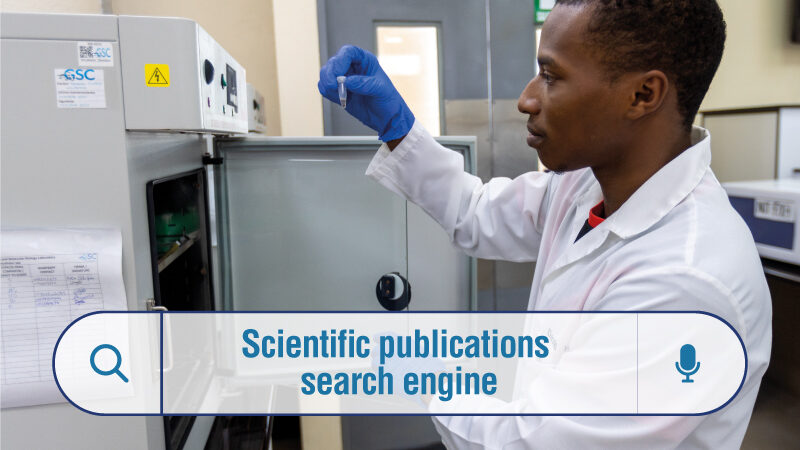
The Galapagos Science Center (GSC) has become a global reference in scientific research, thanks to its extensive publications, which contribute to the understanding, conservation, and sustainable management of one of the planet’s most fragile and unique ecosystems. Each research study reflects our commitment to biodiversity, community well-being, and sustainability in the Galápagos Islands. Through our scientific publications search engine, discover how our studies are making a difference and learn more about the GSC’s impact on global science.
Adventures in the Virtual Classroom: Learn to Care for the Ocean from Home!
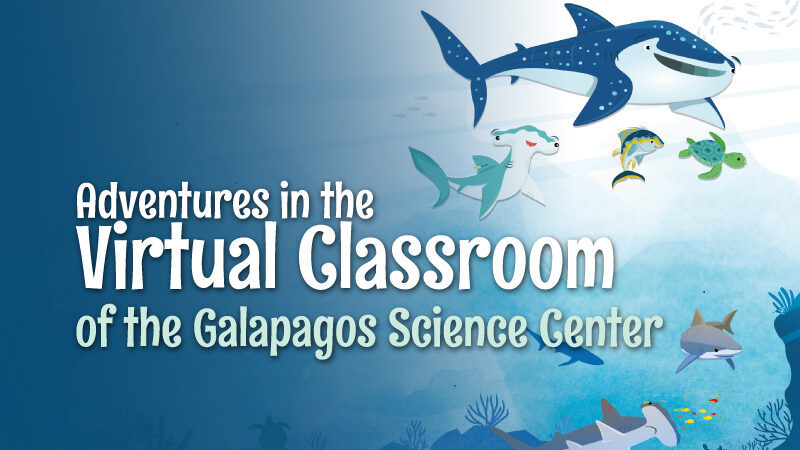
Discover the story of Marti, the hammerhead shark, and join her on an incredible journey from the Galápagos to Isla del Coco! Through this educational tale, learn more about marine biodiversity, the importance of migrations, and the efforts that scientists are making to protect these species.
Access this resource and all educational materials in the Galapagos Science Center Virtual Classroom, where you’ll find interactive tools to explore and learn about the unique ecosystems of the Galápagos Islands.
Explore the Enchanted Islands like never before with the Galápagos Data Hub!
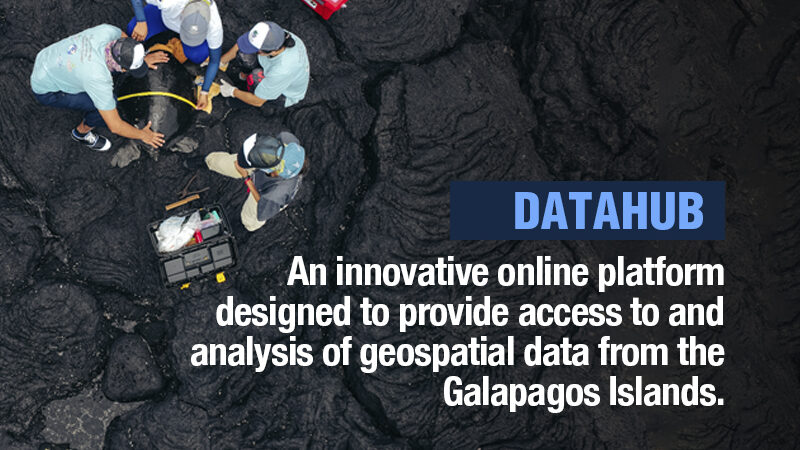
The Galápagos Data Hub is your new digital tool to explore, analyze, and understand the Enchanted Islands in an innovative way. Designed by the Institute of Geography at USFQ and the Galapagos Science Center, this platform integrates geospatial, meteorological, and scientific data to support researchers, educators, and tourism businesses in their mission to protect and manage this unique ecosystem.
With tools like the 3D Viewer for interactive virtual tours, the Weather Dashboard with meteorological data since 2015, and the Geovisualizer with maps of invasive species, migration, and more, you’ll have access to vital information for developing studies in Galápagos. Additionally, in the Dataverse repository, you’ll find satellite images, orthophotos, and downloadable data for your projects.
ConCiencia Magazine, 4th Edition: Another Year of Impact and Transformation in Galápagos
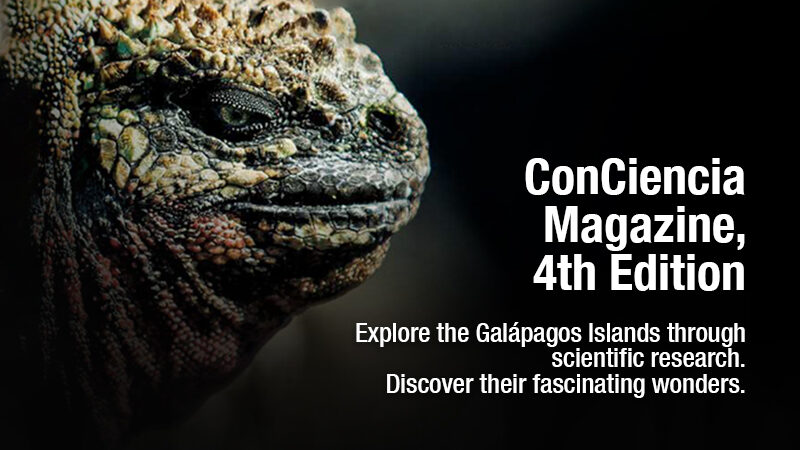
This year, the Galapagos Science Center has continued to make a difference through groundbreaking research, educational programs, and community projects. The 4th edition of ConCiencia magazine captures the best of these efforts, highlighting topics such as the impact of plastic pollution on vulnerable seabird species, the ISLAVET program connecting veterinary students with the islands’ biodiversity, and the Gills Club, an initiative empowering girls through science.
With collaborations involving members from international universities and the local community, this year we reaffirm our commitment to conservation and sustainability. Relive the highlights and explore the impact of the GSC in 2024
Join the International Galapagos Science Consortium!
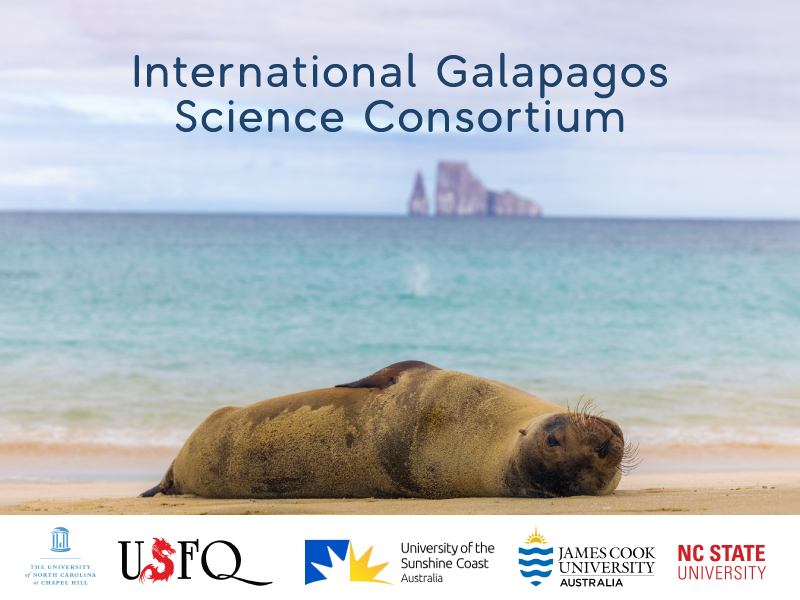
The Galapagos Science Center has a network of institutions known as the International Galapagos Science Consortium (IGSC). This Consortium enables partners to access the services provided by the GSC and collaborate on joint research projects. The IGSC includes James Cook University (Australia), University of the Sunshine Coast (Australia), and North Carolina State University (USA). Currently, it benefits from the work of 14 researchers. This year, 11 scientific publications have been released on various topics.
If you would like more information on how to become a Consortium member, please contact:
Carlos Mena (USFQ): cmena@usfq.edu.ec
Amanda Thompson (UNC): althomps@email.unc.edu
Happy Holidays!
We would like to express our gratitude to the GSC partners whose contributions have been essential in helping us achieve our goals this year. In 2025, we plan to continue developing academic activities aligned with our three core pillars: interdisciplinary scientific research, education through science, and community development. In the meantime, we wish you a joyful holiday season and look forward to continuing our collaboration in the future.

